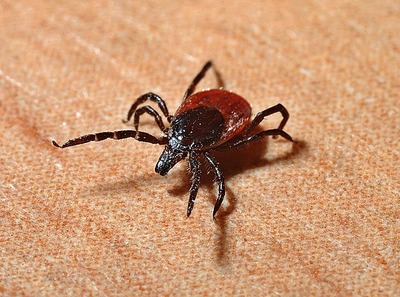Research Shows Ticks Could Pass on CWD Among Deer
Thursday, June 15th, 2023 -- 9:01 AM

(By Danielle Kaeding, Wisconsin Public Radio) Blacklegged ticks or deer ticks are widely known to transmit Lyme disease, and now researchers have found that they may also be a pathway for spreading chronic wasting disease.
According to Danielle Kaeding with Wisconsin Public Radio, those are the findings of a study led by the University of Wisconsin-Madison that were recently published in the peer-reviewed journal Nature Scientific Reports.
The study examined whether ticks could carry an infectious dose of the deadly deer disease. CWD is caused by a misfolded protein or prion. The disease attacks the brains of deer and other animals, causing drastic weight loss and death over time.
As part of the study, lead author Heather Inzalaco, a post-doctoral researcher at UW-Madison, gave blood with CWD-positive material to ticks in a lab. She found that the ticks both ingested and excreted CWD prions.
After proving ticks could ingest CWD prions, Inzalaco went through around 2,000 deer heads for ticks at the Department of Natural Resources' CWD processing center to test results in the field.
She then examined tick and ear samples from 174 tick-infested deer heads. Among them, there were 15 deer that tested positive for the disease, and samples showed a CWD prevalence ranging up to 40 percent in ticks that had fed on CWD-infected whitetail deer.
The findings showed ticks can take up enough CWD prions from infected blood that they could pose a risk of infecting deer, according to Stuart Lichtenberg. He’s a co-author of the study and a scientist at the Minnesota Center for Prion Research and Outreach at the University of Minnesota. Daniel Storm, fellow co-author and DNR research scientist, said the findings mean deer could possibly transmit the disease by grooming one another.
Feel free to contact us with questions and/or comments.




